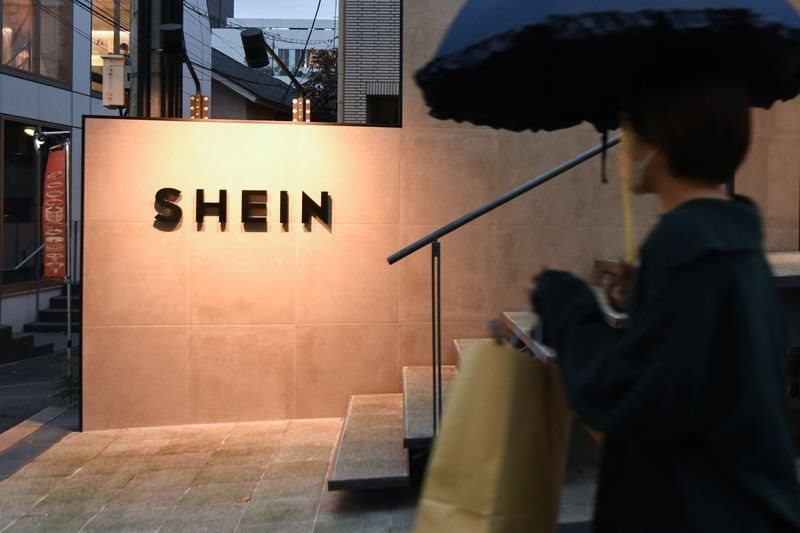Chinese startup helps to get rich super fast: Founders get rich 3 times faster than others in the same industry, the earliest investor gets a profit of 2000%
- Tram Ho
On Japan’s famous high-end Omotesando shopping street, alongside famous brands like Ralph Lauren, Gucci and Louis Vuitton, a new fashion icon is appearing. It is Shein – a fast fashion brand from China that has become a phenomenon in recent years.
The rise of Shein and the controversies surrounding it have made waves in the fashion industry. However, the two-storey store in Tokyo also bears another symbol: symbolizing the rapid wealth that the four founders of Shein are enjoying.
Ralph Lauren, who launched the Polo brand in 1967, took 30 years to become a dollar billionaire.
And Xu Yangtian, CEO of Shein, took less than 10 years to build one of the largest fortunes in the world. His net worth is now at least $23.5 billion according to the Bloomberg Billionaire index. In which, it is estimated that the number of shares in Shein contributes 1/3.
A total of 4 founders – including Xu, Miao Miao, Gu Xiaoqing and Ren Xiaoqing – own a total of nearly 40 billion USD. One of Shein’s biggest and earliest investors was the Tiger Global fund, which brought in more than 20 times its initial investment.

Shein store in Tokyo. Photo: Bloomberg.
Shein’s most distinctive features are the super-fast speed of new models, the ability to accurately predict the tastes of teenagers and the effective application of artificial intelligence as well as a super-fast supply chain.
The “heart” of that success is Xu, a character who seems to have nothing to do with fashion.
Born in 1983 in Shandong province (Eastern China), Xu studied international commerce, after graduating, worked for an online marketing company with the job of increasing website traffic and increasing sales. sell. In 2008, he and two associates started a company selling women’s clothing and accessories.
This project failed. However, Xu met people who later became his most trusted associates. Miao, Gu and Ren are the three employees who followed him to found Shein a decade ago. Currently, they are all senior leaders of Shein, each owns assets of more than $ 5 billion and holds about 7.6% shares.
The founders’ roots in online marketing are key to Shein’s success. Using real-time data and algorithms, Shein identifies which models are selling best and instantly adjusts production lines, optimizes inventory, and achieves fastest delivery speeds.
The pandemic has boosted Shein’s growth as young people are stuck at home and constantly shopping for cheap clothes with the limited budgets they have. More than half of Shein’s customers are Gen Z, who were born in the late 1990s to early 2010s.
Shein has a lot of products under $10, and suppliers have to deliver new models within 10 days – a pace faster than Zara’s famous three-week turnaround.
Shein has captivated customers in Europe and the US with videos in which influencers create “dream wardrobes” using items as low as $3. These videos are widely shared on TikTok and YouTube during each major shopping occasion and immediately create a fever, while every week Shein releases thousands of new clothing models to meet the demand.

Many celebrities attended Shein’s virtual concert. Photo: Getty Images.
In 2018, Shein was valued at $2.5 billion. A year later, the number doubled. Last April, investors valued the Chinese fast-fashion phenomenon at $100 billion – more than H&M and Zara combined.
Despite recent concerns about the Chinese economy and the Chinese tech industry negatively affecting Shein’s prospects, the company was valued at $70 billion in its July funding round.
Shein’s success helped the earliest investors like Sequoia China and IDG Capital to win big. However, perhaps Tiger Global is the most successful. The New York-based fund invested $72 million in Shein since 2018 for a 2.7% stake. Now the amount has increased more than 20 times. Earlier this year, Tiger Global continued to pump money, and Shein remains one of the fund’s most successful investments amid a troubled tech industry worldwide.
Shein has a big advantage over ByteDance – the private company behind TikTok is also in the portfolio of Tiger Global. ByteDance’s IPO deal has faced many difficulties and been postponed indefinitely because of political concerns. Shein said the earliest in 2024 will IPO.
Almost all of Shein’s revenue comes from overseas markets. The company has a 40% market share in the fast fashion market in the US. Last year, revenue reached 16 billion USD, up 6 billion USD compared to 2020.
“Investors feel comfortable that Shein depends on the needs of foreign consumers, not China. This means that Shein can completely avoid the effects of China’s economic slowdown, “said Allioson Malmsten, director of Daxue Consulting. Xu also avoids political problems.
Still, there are growing risks. Several competitors are emerging, while revenue growth slows. The entire fast fashion industry is being criticized for creating a lot of waste and rampant piracy.
Shein’s biggest challenge is to improve the image and make the business more sustainable, because the next generation will pay more attention to the social responsibility of companies.
At the store in Tokyo, all transactions are done via the app or the website. In fact, Shein does not sell directly, but instead the main goal is to attract potential customers and influencers to the store and then shoot clips to upload to social networks. Shein will then use technology to analyze and track consumer behavior, ultimately selling more products.
Refer to Bloomberg
Source : Genk
